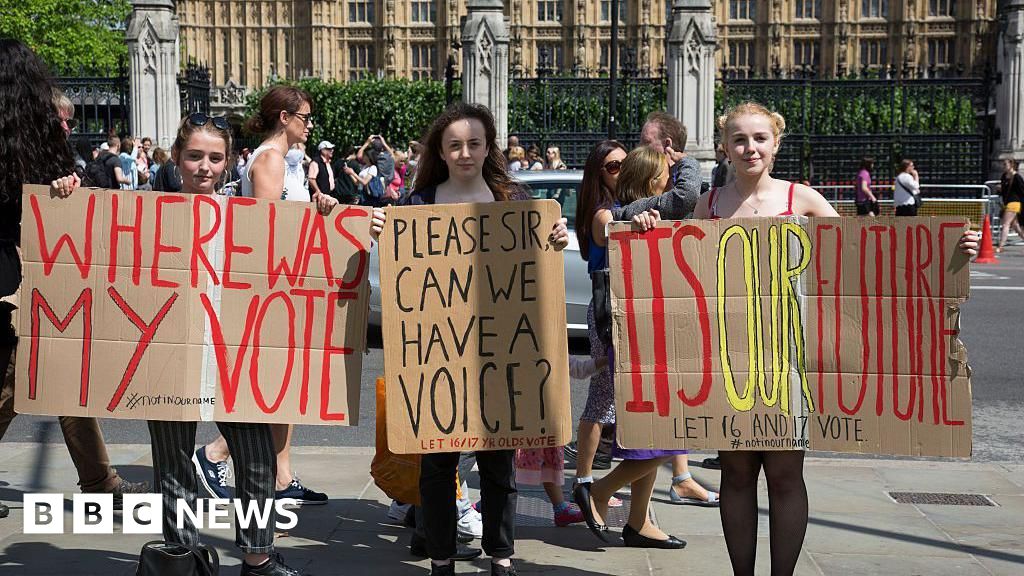
The UK government has announced plans to lower the voting age to 16, allowing younger citizens to participate in the next general election. Democracy Minister Rushanara Ali described the change as “seismic,” emphasizing its importance in ensuring that the voices of young people are heard in the democratic process. This initiative is part of a broader Elections Bill that aims to reform various aspects of the electoral system.
The proposed changes include expanding acceptable forms of voter ID to include UK-issued bank cards, moving towards automatic voter registration, and tightening rules on political donations to prevent foreign interference. These measures, according to Ali, are designed to modernize and secure the electoral process while making it more inclusive.
The Context of Lowering the Voting Age
Currently, the minimum voting age is already 16 for local elections in Scotland and Wales, as well as for elections to the Senedd and Scottish Parliament. However, for UK Parliament elections, local elections in England, and all elections in Northern Ireland, the voting age remains 18. Lowering the voting age to 16 across the UK would mark the most significant change to the electorate since it was reduced from 21 to 18 in 1969.
While the Labour Party had included this pledge in their election manifesto, it was notably absent from last summer’s King’s Speech, which outlines the government’s priorities. Ali confirmed that the government intends to implement the change in time for the next general election, due by 2029 but possibly occurring sooner.
Arguments For and Against
Ali argued that 16-year-olds, who can work, pay taxes, and join the army, should have a say in who governs the country. “There’s no reason why from that age, they shouldn’t have a say,” she told the BBC. This move, she added, would ensure that politicians consider young people’s concerns on issues such as crime, education, work, and housing.
However, the proposal has faced criticism. Conservative shadow minister Paul Holmes questioned the consistency of allowing 16-year-olds to vote while they are still restricted from activities such as buying lottery tickets, alcohol, marrying, or serving in the military. “Why does this government think a 16-year-old can vote but not be allowed to buy a lottery ticket, an alcoholic drink, marry, or go to war?” he asked in the Commons.
Reforming Voter ID and Registration
Another significant aspect of the Elections Bill is the expansion of voter ID options to include UK-issued bank cards. This change aims to address concerns that the current voter ID requirements, introduced by the Conservatives in 2023, could disenfranchise legitimate voters. The Electoral Commission reported that 4% of non-voters in the last general election cited voter ID rules as the reason for not voting.
Labour has expressed a desire to “address inconsistencies” in the voter ID rules rather than scrapping the policy entirely. However, the Conservatives have raised concerns that allowing bank cards as voter ID could compromise the security of the electoral process. Ali assured that the government would introduce these changes gradually to mitigate risks.
The government is also working towards an automated voter registration system. Currently, nearly eight million people are incorrectly registered or missing from the electoral register, disproportionately affecting private renters and young people. The proposed system would involve data sharing between government agencies to automatically register eligible voters, although the specifics of this plan are still being developed.
Tackling Foreign Interference in Political Donations
In a bid to prevent foreign interference in UK politics, the government plans to tighten rules around political donations. Currently, donations can only be accepted from individuals on the UK electoral register or UK-registered companies. However, concerns have been raised about foreign nationals circumventing these rules by donating through UK-registered foreign companies.
Recent reports highlighted the potential for high-profile figures, such as US billionaire Elon Musk, to make donations through foreign entities registered in the UK. The new measures would require political parties to verify that donor companies generate sufficient income in the UK or Ireland. The Electoral Commission would be empowered to impose fines of up to £500,000 for breaches of these rules.
Reactions and Future Implications
The National Union of Students hailed the lowering of the voting age as “a major victory for young people,” urging the government to facilitate voting for 16 and 17-year-olds by eliminating voter ID laws and promoting political literacy in education. Meanwhile, the Liberal Democrats described the move as “a no-brainer” but called for more robust measures to prevent foreign influence in British politics.
As the government proceeds with these electoral reforms, the implications for the UK’s democratic landscape could be profound. By expanding the electorate and modernizing the voting process, these changes aim to enhance participation and ensure the integrity of elections. However, the debate over the balance between accessibility and security is likely to continue as these measures are implemented.







